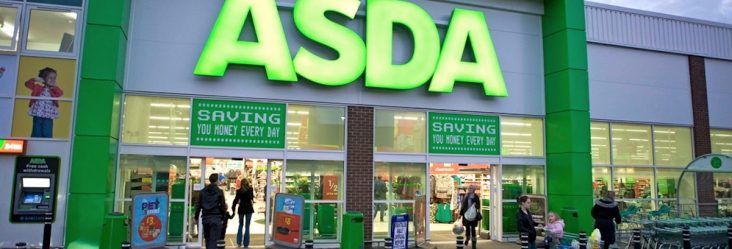Walmart’s Asda forecasts economic factors causing retailers to lower prices
by January 13, 2016 3:27 pm 611 views

Asda, Walmart’s grocery chain in the United Kingdom, forecasts another challenging year for grocers amid hyper competition from deep discounters like Aldi and worsening economic conditions for the island nation in 2016.
Andy Clarke, president for Walmart Asda, is pledging another 500 million pounds or $721.9 million to lower prices as the grocery discount wars accelerate. This is the second time Asda has announced hefty price cuts since 2013, when the retailer said it would invest $1.44 billion or one billion pounds in lowering prices for its customers through 2018.
“There is currently no growth in the food market and the rise of the discounters means that we must take radical action to win back our customers,” said the chief executive said in a media statement on Sunday (Jan. 10).
Clarke described 2015 as perhaps the “worst storm in retail history” as the grocer posted its lowest-ever quarterly sales decline quarter-after quarter. Asda has seen five straight quarters of falling revenue and is expected to report a sixth ugly quarter next month.
James Walton, chief economist at food and grocery researchers IGD, said the trends are not likely to soon abate.
“Trading conditions in U.K. grocery are challenging. Price deflation is damping down retailer performance. The U.K. has now experienced 17 consecutive months of year-on-year food price deflation, affecting every major product category. Deflation of this severity and duration is unprecedented in modern times,” Walton said. “To some extent this reflects falling input costs, such as energy and food commodities, but a strong competitive challenge from the discounters, such as Lidl and Aldi, has also had a powerful influence on pricing.”
Continuing, he noted: “Looking ahead, an economic recovery and an increase in shopper confidence will provide opportunities for food and drink retailers and suppliers to move the market forward.”
In an effort to shore up margins amid deep price cuts, Asda joined Europe’s largest grocery alliance, which combines the buying power of 250 supermarket chains to help bring down the cost of goods while also helping to improve the quality of certain items. While overall sales are down, Clarke said the Wal-Mart-owned grocery chain did see a modest 2.3% increase in net profits last year.
In October, Asda launched its “Project Renewal” to trim the number of products on its shelves to reduce costs base. It sells up to 30,000 items in its stores, compared to Lidl and Aldi, which have up to 2,500.
The retailer also said it was eliminating 29 jobs as its closed its business-to-business sales division, and it put the expansion of click and collect sites on hold. Asda officials plan to invest in lowering the prices of groceries over the next 18 months as well as refurbish 95 of its larger stores.
Walmart International CEO David Cheesewright in November said the biggest concerns for Asda and grocers in the U.K. was declining traffic in larger stores and deflationary prices squeezing margins, while online grocery sales continue to grow. He said Wal-Mart reevaluated spending strategy in the U.K., pulling back efforts to expand grocery pickup at fueling stations. He said Asda is retrenching to try and build momentum in its core business where it will focus on lower prices for goods sold as well as improving quality and services in its larger stores.
“Our direction of travel is to continue to widen the gap between the other grocers and narrow the gap with the discounters,” Clarke said.
